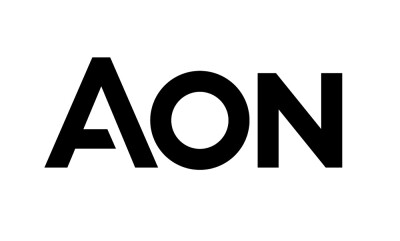Goodbye clicks, Hello answers: How is Answer Engine Optimisation (AEO) replacing traditional SEO?

For decades, Search Engine Optimisation (SEO) has been the gold standard for digital visibility. Brands fought for the top spots on Google by optimising content with the right keywords, backlinks, metadata, and page structures. It was (and still is) crucial for attracting organic traffic, building credibility, and converting users. But the game is changing, and it will be changing faster than we think.
The era of typing a query and clicking on a link is giving way to something faster, simpler, and more direct: answers. With the rise of AI-powered tools like ChatGPT, Google’s Search Generative Experience (SGE), and voice assistants like Alexa or Siri, people are no longer searching — they’re asking and expecting instant and personalised answers. This shift has paved the way for a new paradigm: Answer Engine Optimisation (AEO).
If you’ve built your entire strategy around traditional SEO, this should be a wake-up call. We’re no longer optimising for humans who scroll — we’re optimising for machines that respond.
From SEO to AEO: A technological evolution
The move from SEO to AEO hasn’t happened overnight. It’s the result of years of technological evolution:
- Mobile-first indexing made searches more conversational.
- Voice search normalised full-sentence queries like “What’s the best restaurant near me?”
- Featured snippets and “zero-click” results started answering questions without requiring a click.
- Now, Generative AI tools are taking over the search experience entirely — delivering summarised and, more importantly, personalised answers, not lists of links.
What is AEO or Answer Engine Optimisation?
Answer Engine Optimisation is the process of crafting content in a way that makes it easily understood and surfaced by AI-based answer engines. Unlike SEO, which is about ranking on a search results page, AEO is about becoming the trusted source that answer engines pull from when responding to a user’s question.
Think of it as preparing your content to be consumed by machines that don’t rely on traditional rankings, but instead on natural language processing, structured data, and content clarity.
AEO is about:
- Understanding user intent deeply.
- Structuring content for machine readability.
- Providing direct, accurate, and concise answers.
- Using schema markup and structured data to help engines interpret your content contextually.
How to optimise for AEO?
If you want to stay ahead of the curve and prepare your content for answer engines, here are some actionable tips and use cases:
Start with questions – End with answers: Write in Q&A formats. Use headers that match how people ask questions. Keep answers concise, clear, and factual. Think: “Would an AI model quote this?”
Example: A skincare brand creates a blog post titled “What causes adult acne?” with a clear, one-paragraph answer under the question, perfect for AI tools to extract and quote.
Lean into schema markup: You need to spoon-feed context to answer engines. Use structured data (FAQs, How-Tos, Articles) to label your content’s purpose and meaning.
Example: An e-commerce site adds Product schema to its product pages so answer engines can easily pull price, availability, and customer ratings.
Optimise for how people speak: No one says “best CRM software UK B2B 2025.” They say, “What’s the best CRM for small businesses in the UK?” Write like that.
Example: A travel company optimises a guide titled “Where to stay in Barcelona for first-time visitors?” rather than targeting the stiff keyword “Barcelona hotel guide.”
Make credibility visible: Cite experts. Add bylines. Update your content. If your article hasn’t changed in two years, why would an AI trust it in 2025?
Example: A health tech startup regularly updates its “Symptoms of long COVID” page with the latest medical guidance, ensuring it’s a credible AI source.
Think beyond Google: Yes, it still matters… but tools like ChatGPT, Bing Copilot, Perplexity, and even vertical-specific AI assistants are gaining ground. And they all need sources.
Example: A fintech blog highlights its team of industry experts at the top of each article, increasing its credibility as a source for answer engines.
So, is SEO dead?
Not entirely death, but it’s definitely evolving. In a world now dominated by generative AI and conversational search, Answer Engine Optimisation is the new frontier. The metrics that once mattered (rankings, clicks, impressions) are losing power. What’s rising in their place? Relevance, accuracy, and authority, in machine-readable form.
To remain relevant, brands and content creators must shift focus. The future belongs to those who can answer better, faster, and more reliably than the competition, not to those who simply rank higher.
Editor’s note: Are you looking for a more reliable source of startup information? Use the EU-Startups GPT — your AI companion for startup news, insights, and expert analysis. Whether you’re a founder, marketer, or investor, it’s designed to help you find answers faster and stay competitive in a changing digital landscape.
The post Goodbye clicks, Hello answers: How is Answer Engine Optimisation (AEO) replacing traditional SEO? appeared first on EU-Startups.
















































